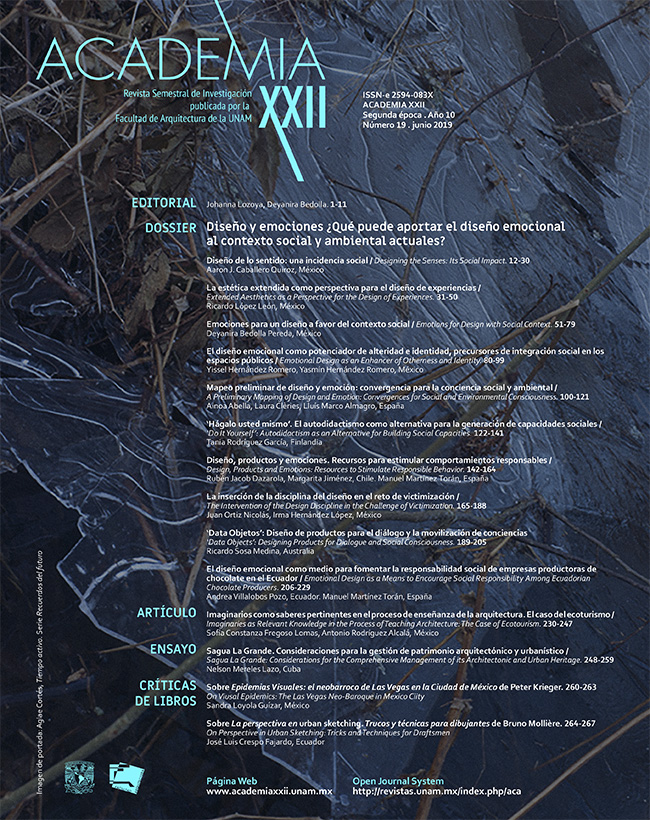Imaginarios como saberes pertinentes en el proceso de enseñanza de la arquitectura. El caso del ecoturismo
Contenido principal del artículo
Resumen
Incorporar el tema de los imaginarios en el contexto de la enseñanza de la arquitectura tiene como propósito coadyuvar al desarrollo de las habilidades del pensamiento creativo en el estudiante de esta disciplina. En este texto, se propone que la lectura de los imaginarios del turismo durante el proceso de diseño en un taller de proyectos detona un proceso creativo no lineal, en tanto que aporta información del contexto sociocultural, al tiempo que informa sobre las determinantes de las prácticas turísticas (individual y colectiva) dentro de un grupo, lo cual permite dar respuestas integrales y holísticas de diseño enfocadas al usuario-grupo-contexto. De acuerdo con Irma Cantú, la creatividad en el proceso de diseño puede ser favorecida por estrategias que ayuden a desbloquear su desarrollo, al tiempo que la incrementan. En esta línea, la lectura, en particular de temas afines, impulsa las metáforas y analogías, las cuales son la base de una construcción teórica del concepto arquitectónico.
La naturaleza antropológica del imaginario nos sirve como herramienta epistemológica; permite acercarnos a cualquier fenómeno social complejo, revelarnos sus diferentes niveles de expresión, mostrarnos parte de su historia y el modo de relación con el contexto social y natural donde ocurre. Debido a que en los últimos treinta años hay una necesidad en la educación superior de incluir la dimensión ambiental (formulada más como una elección, como un imperativo) en los modelos educativos orientados al desarrollo sostenible, consideramos que con la revisión del imaginario del ecoturismo, a través de la descripción de su ideario, es posible contribuir a la ambientalización del currículo universitario en licenciaturas como Arquitectura. Finalmente, desde el punto de vista del diseño arquitectónico, proponemos que la complejidad estructural de un imaginario como representación mental de las creencias y modos de habitar de un grupo humano puede ser útil para la comprensión del usuario y las relaciones de habitabilidad que establece en un contexto específico.
